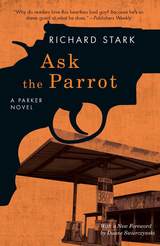
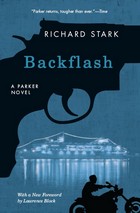
Parker's got a couple of rules that have helped keep him alive throughout his long career. One of those is never to work on a boat. But with a gambling boat cruising down the Hudson, stuffed to the gunwales with cash, Parker’s got a plan, a team, and a new rule: a shot at a big enough score makes any rule worth breaking. Parker and his crew hit the boat, hard, but as always, there are a lot of complications—and a lot of bodies—before this one's in the bag.
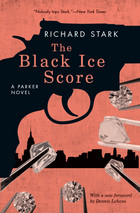

Donald E. Westlake is one of the greats of crime fiction. Under the pseudonym Richard Stark, he wrote twenty-four fast-paced, hardboiled novels featuring Parker, a shrewd career criminal with a talent for heists. Using the same nom de plume, Westlake also completed a separate series in the Parker universe, starring Alan Grofield, an occasional colleague of Parker. While he shares events and characters with several Parker novels, Grofield is less calculating and more hot-blooded than Parker; think fewer guns, more dames.
Not that there isn’t violence and adventure aplenty. The third Grofield novel, The Blackbird shares its first chapter with Slayground: after a traumatic car crash, Parker eludes the police, but Grofield gets caught. Lying injured in the hospital, Grofield is visited by G-Men who offer him an alternative to jail, and he finds himself forced into a deadly situation involving international criminals and a political conspiracy.
With a new foreword by Sarah Weinman that situates the Grofield series within Westlake’s work as a whole, this novel is an exciting addition to any crime fiction fan’s library.
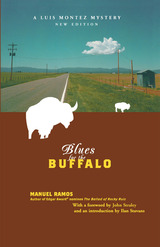
The sun, the sand, a young beauty named Rachel in a white bikini—there's no better way to recover from the aches and pains of your latest case. At least that's what attorney and part-time detective Luis Montez thinks until the woman gives him the manuscript of her novel and vanishes.
Montez just wants to rebuild his Denåver practice, but an aggressive young P.I. with an emotional attachment to Rachel draws him in. With the woman's powerful adopted family on one side and unexplained death of a writer friend on the other, Montez digs up a series of long-told lies and long-hidden ugly truths. He also finds himself confronting one of the great unsolved mysteries of recent Chicano history. What happened to Oscar "Zeta" Acosta, the iconic activist-writer presumed dead since 1974? More to the point, what made Rachel insist the legendary Brown Buffalo was alive-and that he was her real father?
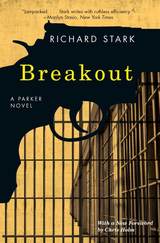
With Parker locked up and about to be unmasked, Breakout follows his Houdini-like escape from prison with a team of convicts. But when a new heist and new dangers—con artists, snitches, busybodies, eccentrics, and cops—loom among the dark alleys and old stone buildings of the big city to which they’ve fled, Parker soon learns that not all prisons have bars.
Featuring new forewords by Chris Holm, Duane Swierczynski, and Laura Lippman—celebrated crime writers, all—these masterworks of noir are the capstone to an extraordinary literary run that will leave you craving more. Written over the course of fifty years, the Parker novels are pure artistry, adrenaline, and logic both brutal and brilliant. Join Parker on his jobs and read them all again or for the first time. Just don’t talk to the law.
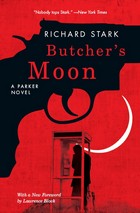
The sixteenth Parker novel, Butcher’s Moon is more than twice as long as most of the master heister’s adventures, and absolutely jammed with the action, violence, and nerve-jangling tension readers have come to expect. Back in the corrupt town where he lost his money, and nearly his life, in Slayground, Parker assembles a stunning cast of characters from throughout his career for one gigantic, blowout job: starting—and finishing—a gang war. It feels like the Parker novel to end all Parker novels, and for nearly twenty-five years that’s what it was. After its publication in 1974, Donald Westlake said, “Richard Stark proved to me that he had a life of his own by simply disappearing. He was gone.”
Featuring a new introduction by Westlake’s close friend and writing partner, Lawrence Block, this classic Parker adventure deserves a place of honor on any crime fan’s bookshelf. More than thirty-five years later, Butcher’s Moon still packs a punch: keep your calendar clear when you pick it up, because once you open it you won’t want to do anything but read until the last shot is fired.
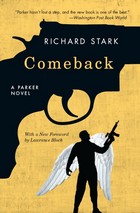
After the bloodbath of Butcher’s Moon, the action-filled blowout Parker adventure, Donald Westlake said, "Richard Stark proved to me that he had a life of his own by simply disappearing. He was gone." And for nearly twenty-five years, he stayed away, while readers waited.
But nothing bad is truly gone forever, and Parker’s as bad as they come. According to Westlake, one day in 1997, “suddenly, he came back from the dead, with a chalky prison pallor”—and the resulting novel, Comeback, showed that neither Stark nor Parker had lost a single step. Knocking over a highly lucrative religious revival show, Parker reminds us that not all criminals don ski masks—some prefer to hide behind the wings of fallen angels.
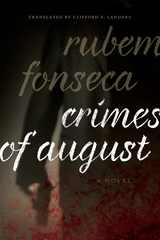
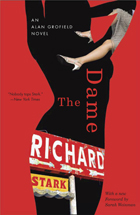
Donald E. Westlake is one of the greats of crime fiction. Under the pseudonym Richard Stark, he wrote twenty-four fast-paced, hardboiled novels featuring Parker, a shrewd career criminal with a talent for heists. Using the same nom de plume, Westlake also completed a separate series in the Parker universe, starring Alan Grofield, an occasional colleague of Parker. While he shares events and characters with several Parker novels, Grofield is less calculating and more hot-blooded than Parker; think fewer guns, more dames.
Not that there isn’t violence and adventure aplenty. . The Dame finds Grofield in Puerto Rico protecting a rich, demanding woman in her isolated jungle villa, and reluctantly assuming the role of detective. A rare Westlake take on a whodunit, The Dame features a cast of colorful characters and a suspenseful—and memorable—climax.
With a new foreword by Sarah Weinman that situates the Grofield series within Westlake’s work as a whole, this novel is an exciting addition to any crime fiction fan’s library.
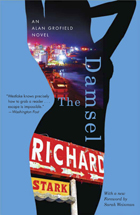
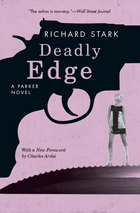
Deadly Edge bids a brutal adieu to the 1960s as Parker robs a rock concert, and the heist goes south. Soon Parker finds himself—and his woman, Claire—menaced by a pair of sadistic, strung-out killers who want anything but a Summer of Love. Parker has a score to settle while Claire’s armed with her first rifle—and they’re both ready to usher in the end of the Age of Aquarius.
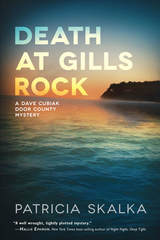
Investigating, Cubiak discovers that the men’s veneer of success and respectability hides a trail of lies and betrayal that stems from a single, desperate act of treachery and eventually spreads a web of deceit across the peninsula. In a dark, moody tale that spans more than half a century, Cubiak encounters a host of suspects with motives for murder. Amid broken dreams, corruption, and loss, he sorts out the truth. Death at Gills Rock is the second book in Patricia Skalka’s Dave Cubiak Door County Mystery series.

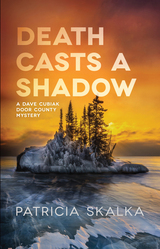
The scene bears all the characteristics of an accidental fall, not unheard of for a person of her age, but something is not adding up. Later that week, an explosion in an ice fishing shack on the frozen bay leads to the discovery of another body, burned beyond recognition. Was this the widow’s missing handyman? Could the two deaths be related? With what has become a hallmark for books in the series, past and present collide as Cubiak’s search for answers uncovers the sad legacy of loneliness and the disquieting links between wealth and poverty on the peninsula.
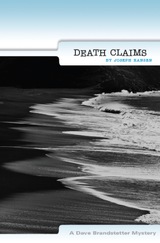
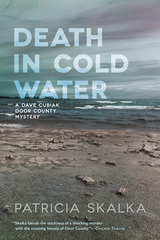
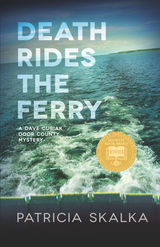
The jubilant mood sours when an unidentified passenger is found dead on a ferry. Longtime residents recall with dismay the disastrous festival decades earlier, when another woman died and a valuable sixteenth-century instrument—the fabled yellow viol—vanished, never to be found.
Cubiak follows a trail of murder, kidnapping, and false identity that leads back to the calamitous night of the twin tragedies. With the lives of those he holds most dear in peril, the sheriff pursues a ruthless killer into the stormy northern reaches of Lake Michigan.
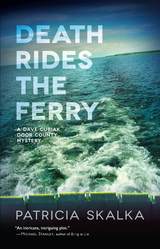
The jubilant mood sours when an unidentified passenger is found dead on a ferry. Longtime residents recall with dismay the disastrous festival decades earlier, when another woman died and a valuable sixteenth-century instrument—the fabled yellow viol—vanished, never to be found.
Cubiak follows a trail of murder, kidnapping, and false identity that leads back to the calamitous night of the twin tragedies. With the lives of those he holds most dear in peril, the sheriff pursues a ruthless killer into the stormy northern reaches of Lake Michigan.

Forced to confront the past, the morose Cubiak moves beyond his own heartache and starts investigating, even as a popular festival draws more people into possible danger. In a desperate search for clues, Cubiak uncovers a tangled web of greed, betrayal, bitter rivalries, and lost love beneath the peninsula’s travel-brochure veneer. Befriended by several locals but unsure whom to trust or to suspect of murder, the one-time cop tracks a clever killer.
In a setting of stunning natural beauty and picturesque waterfront villages, Death Stalks Door County introduces a new detective series, “The Dave Cubiak Door County Mysteries.”
Finalist, Traditional Fiction 2014 Book of the Year Award, Chicago Writers Association
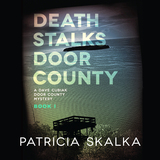
Forced to confront the past, the morose Cubiak moves beyond his own heartache and starts investigating, even as a popular festival draws more people into possible danger. In a desperate search for clues, Cubiak uncovers a tangled web of greed, betrayal, bitter rivalries, and lost love beneath the peninsula’s travel-brochure veneer. Befriended by several locals but unsure whom to trust or to suspect of murder, the one-time cop tracks a clever killer.
In a setting of stunning natural beauty and picturesque waterfront villages, Death Stalks Door County introduces a new detective series, “The Dave Cubiak Door County Mysteries.”
Finalist, Traditional Fiction 2014 Book of the Year Award, Chicago Writers Association
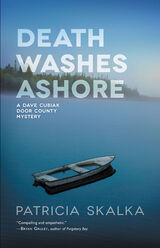
Chasing leads, the sheriff learns the victim directed a troupe of live-action role players living in an ersatz Camelot. In a setting where pretense in the norm, Cubiak must determine if suspects are who they say they are or if their made-up identities conceal a ruthless killer. As tensions escalate among neighbors unhappy about the noise and commotion, the sheriff discovers that more than one person on the peninsula has a motive for murder.
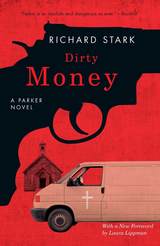
Parker’s got a new fence and a new plan to get the loot back from a botched job in Dirty Money, but a bounty hunter, the FBI, and the local cops are on his tail. Only his brains, his cool, and the help of his lone longtime dame, Claire, can keep him one step ahead of the cars and the guns.
Featuring new forewords by Chris Holm, Duane Swierczynski, and Laura Lippman—celebrated crime writers, all—these masterworks of noir are the capstone to an extraordinary literary run that will leave you craving more. Written over the course of fifty years, the Parker novels are pure artistry, adrenaline, and logic both brutal and brilliant. Join Parker on his jobs and read them all again or for the first time. But don’t talk to the law.
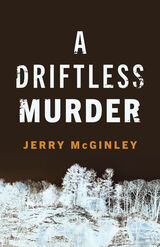
As strange details continue to emerge, the detectives enlist the help of city cop and data expert Shea Sommers. As the team crisscrosses the state to chase a few promising leads, their search expands beyond local guides and neighbors to members of a sinister, secret hunting society. When Duggan mysteriously disappears—and becomes a suspect himself—Donegal must take over the investigation. He soon realizes the case might not only be unsolvable but could land him in prison—or an early grave.
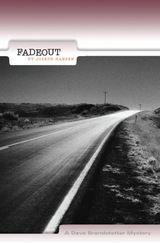
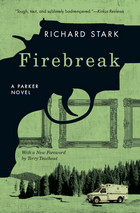
Between Parker’s 1961 debut and his return in the late 1990s, the whole world of crime changed. Now fake IDs and credit cards had to be purchased from specialists; increasingly sophisticated policing made escape and evasion tougher; and, worst of all, money had gone digital—the days of cash-stuffed payroll trucks were long gone.
But cash isn’t everything: Flashfire and Firebreak find Parker going after, respectively, a fortune in jewels and a collection of priceless paintings. In Flashfire, Parker’s in West Palm Beach, competing with a crew that has an unhealthy love of explosions. When things go sour, Parker finds himself shot and trapped—and forced to rely on a civilian to survive. Firebreak takes Parker to a palatial Montana "hunting lodge" where a dot-com millionaire hides a gallery of stolen old masters—which will fetch Parker a pretty penny if his team can just get it past the mansion’s tight security. The forests of Montana are an inhospitable place for a heister when well-laid plans fall apart, but no matter how untamed the wilderness, Parker’s guaranteed to be the most dangerous predator around.
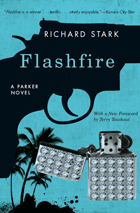
Between Parker’s 1961 debut and his return in the late 1990s, the whole world of crime changed. Now fake IDs and credit cards had to be purchased from specialists; increasingly sophisticated policing made escape and evasion tougher; and, worst of all, money had gone digital—the days of cash-stuffed payroll trucks were long gone.
But cash isn’t everything: Flashfire and Firebreak find Parker going after, respectively, a fortune in jewels and a collection of priceless paintings. In Flashfire, Parker’s in West Palm Beach, competing with a crew that has an unhealthy love of explosions. When things go sour, Parker finds himself shot and trapped—and forced to rely on a civilian to survive. Firebreak takes Parker to a palatial Montana "hunting lodge" where a dot-com millionaire hides a gallery of stolen old masters—which will fetch Parker a pretty penny if his team can just get it past the mansion’s tight security. The forests of Montana are an inhospitable place for a heister when well-laid plans fall apart, but no matter how untamed the wilderness, Parker’s guaranteed to be the most dangerous predator around.
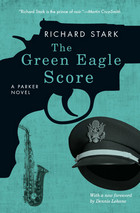
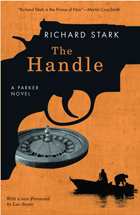
In The Handle, Parker is enlisted by the mob to knock off an island casino guarded by speedboats and heavies, forty miles from the Texas coast. With double-crosses and double-dealings from the word go, Parker knows the line between success and failure on this score would be exactly the length of the barrel of a .38.
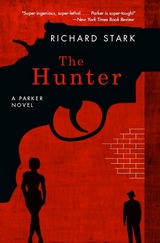
In The Hunter, the first volume in the Parker series, our ruthless antihero roars into New York City, seeking revenge on the woman who betrayed him and on the man who took his money, stealing and scamming his way to redemption. The volume that kickstarted Parker's forty-plus-year career of larceny—and inspired the 1967 motion picture Point Blank, starring Lee Marvin—The Hunter is back, ready to thrill a new generation of noir fans.
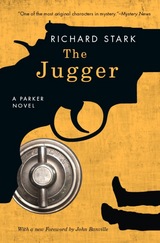
They say the past always catches up to you—but if he can help it, Parker won’t let his. In The Jugger, an old contact who could blow Parker’s cover tells Parker he’s in trouble — then turns up dead. With Parker’s skeletons on the verge of escaping from their closet, he must put the pieces together—at any cost—before it’s too late.
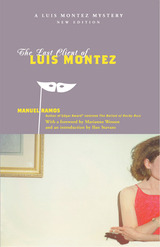
What a difference a day makes. Inside of twenty-four hours, a cop rumored to have received bribes from Montez takes a header off a mountain, Jimmy Esch is found butchered, and the cops consider the attorney their top suspect. Lisa—Montez's alibi—has conveniently disappeared. As if all that wasn't enough, Montez must also cope with the news his father is in the hospital.
Distracted by family strife and a media circus, Montez broods on the latest wrong turns in his life. Then he decides to act. Jumping bail, he heads across the Rockies to the barrios of San Diego. It's not easy to unravel the perfect set-up when you're down to your last cent. But Montez pursues the truths that will clear his name, and ultimately confronts the powerful force that is Family.
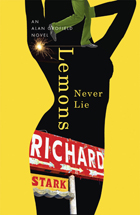
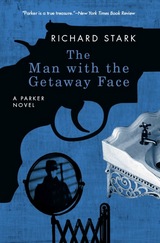
Parker goes under the knife in The Man with the Getaway Face, changing his face to escape the mob and a contract on his life. Along the way he scores his biggest heist yet, but there’s a catch—a beautiful, dangerous catch who goes by the name Alma.
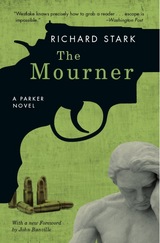
The Mourner is a story of convergence—of cultures and of guys with guns. Hot on the trail of a statue stolen from a fifteenth-century French tomb, Parker enters a world of eccentric art collectors, greedy foreign officials, and shady KGB agents. Hired by a shifty dame who has something he needs, Parker will find out just who intends to bury whom—and who he needs to kill to finish the job.
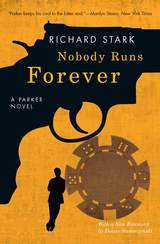
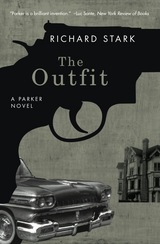
In The Outfit, Parker goes toe-to-toe with the mob, hellbent on taking him down. The notorious lone wolf has some extra tricks up his sleeve, and the entire underworld will learn an unforgettable lesson: whatever Parker does, he does deadly.
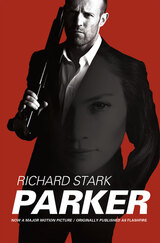
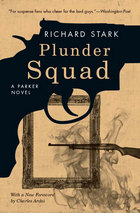
“Hearing the click behind him, Parker threw his glass straight back over his right shoulder, and dove off his chair to the left.” When a job looks like amateur hour, Parker walks away. But even a squad of seasoned professionals can’t guarantee against human error in a high-risk scam. Can an art dealer with issues unload a truck of paintings with Parker’s aid? Or will the heist end up too much of a human interest story, as luck runs out before Parker can get in on the score?
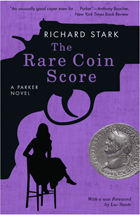
When it comes to heists, Parker believes in some cardinal rules. On this job, he breaks two of them: never bring a dame along—especially not one you like—and never, ever, work with amateurs. Nevertheless, with the help of a creepy coin collector named Billy, and the lure of a classy widow, he agrees to set up a heist of a coin convention. But Billy’s a rookie with no idea how to pull off a score, and the lady soon becomes a major distraction. The Rare Coin Score marks the first appearance of Claire, who pulls off her own heist on Parker's heart—while together they steal two million dollars worth of coins.
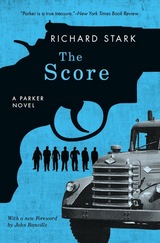
It was an impossible crime: knock off an entire town—a huge plant payroll, all the banks, and all the stores—in one night. But there was one thief good enough to try—Parker. In The Score, Parker takes on his biggest job yet. All he needs are the right men, the right plan, and the right kind of help from Lady Luck. But as everyone knows, you can never count on that last one. This chilling caper could either be the perfect crime… or a set-up that would land him in jail — for life.
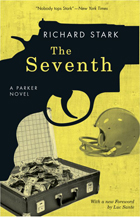
The robbery was a piece of cake. The getaway was clean. The only thing left to do is split the cash—then it all goes wrong. In The Seventh, the heist of a college football game turns sour and the take is stolen from right under Parker’s nose. With the cops on his tail, Parker must figure out who crossed him—and how he can pay the culprit back.

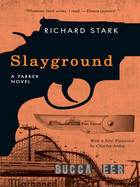
The hunter becomes prey, as a heist goes sour and Parker finds himself trapped in a shuttered amusement park, besieged by a bevy of local mobsters, in Slayground. There are no exits from Fun Island. Outnumbered and outgunned, Parker can’t afford a single miscalculation. He’s low on bullets and making it out alive is a long shot—but, as anyone who’s crossed his path knows, no one is better at playing higher stakes with shorter odds.
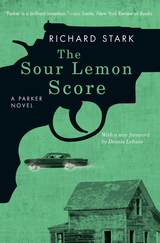
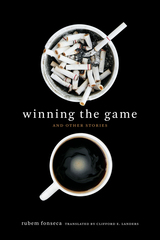
READERS
Browse our collection.
PUBLISHERS
See BiblioVault's publisher services.
STUDENT SERVICES
Files for college accessibility offices.
UChicago Accessibility Resources
home | accessibility | search | about | contact us
BiblioVault ® 2001 - 2024
The University of Chicago Press









